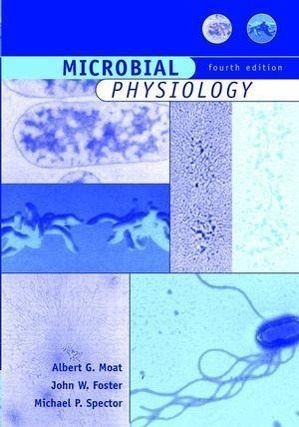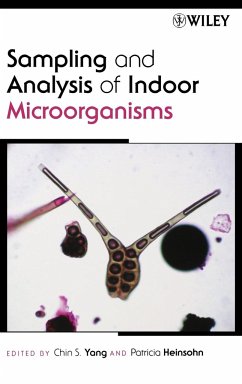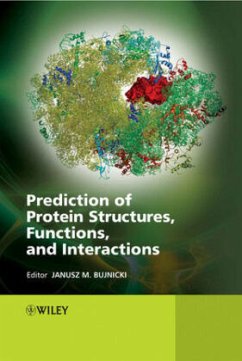
Microbial Physiology

PAYBACK Punkte
82 °P sammeln!
This volume emphasizes the incredible diversity exhibited by microorganisms in widely diverse environments, as well as revealing how genetics and molecular biology are integrated with physiology and metabolism. This Fourth Edition presents all operational aspects of the microbial cell, from genetic to biochemical, thereby providing a comprehensive reference for understanding the mechanisms underlying cell survival and growth.
Microbial physiology is the study of the structure, function, energy metabolism, growth, and regulatory mechanisms of microorganisms. The physiology of microorganisms can be used as a model for the metabolic processes common to all living things. Microbial Physiology emphasizes the incredible diversity exhibited by microorganisms in disparate environments, and reveals how genomic approaches can now be used to integrate knowledge of the genetics and molecular biology of an organism with its physiology and metabolism. The Fourth Edition presents genetic and biochemical aspects of how the microbial cell operates, thereby providing a comprehensive reference for anyone wishing to understand the mechanisms underlying cell survival and growth. In addition to these features, this timely volume also:
_ Retains the logical, easy-to-follow organization of the previous editions: introduction to cell structure and synthesis of cell components, followed by detailed discussions of genetics, metabolism, growth, and regulation
_ Approaches the subject from a modern molecular genetic perspective
_ Includes many new and extensively reillustrated figures
_ Reflects new insights gained from genome projects and features a new chapter on genomics and proteomics
_ Includes an entirely new chapter on host-parasite interactions, covering the molecular and genetic factors involved in microbial pathogenesis
_ Presents a thorough revision of sections on amino acids and cell division
_ Places greater emphasis throughout the text on bacterial responses to environmental stress and features a new chapter devoted to microbial stress responses
_ Offers new treatments of chaperones, protein folding, programmed cell death, alternative sigma factors, anti-sigma factors, synthesis of cell walls and membranes, mitochondrial evolution, nitrogen fixation, extremophiles, stationary phase regulation, and integrons
_ Provides extensive updates on all aspects of microbial physiology such as DNA replication, transcription, translation, genetic exchange mechanisms, DNA repair, protein secretion, gene regulation, plasmid addiction, quorum sensing, chemotaxis, protein processing, energy metabolism, bacteriophage, and many others
Professional microbiologists, researchers employed in the biotechnology and pharmaceutical industries, and advanced undergraduate and graduate students in microbiology will find the Fourth Edition of Microbial Physiology a valuable addition to their libraries.
_ Retains the logical, easy-to-follow organization of the previous editions: introduction to cell structure and synthesis of cell components, followed by detailed discussions of genetics, metabolism, growth, and regulation
_ Approaches the subject from a modern molecular genetic perspective
_ Includes many new and extensively reillustrated figures
_ Reflects new insights gained from genome projects and features a new chapter on genomics and proteomics
_ Includes an entirely new chapter on host-parasite interactions, covering the molecular and genetic factors involved in microbial pathogenesis
_ Presents a thorough revision of sections on amino acids and cell division
_ Places greater emphasis throughout the text on bacterial responses to environmental stress and features a new chapter devoted to microbial stress responses
_ Offers new treatments of chaperones, protein folding, programmed cell death, alternative sigma factors, anti-sigma factors, synthesis of cell walls and membranes, mitochondrial evolution, nitrogen fixation, extremophiles, stationary phase regulation, and integrons
_ Provides extensive updates on all aspects of microbial physiology such as DNA replication, transcription, translation, genetic exchange mechanisms, DNA repair, protein secretion, gene regulation, plasmid addiction, quorum sensing, chemotaxis, protein processing, energy metabolism, bacteriophage, and many others
Professional microbiologists, researchers employed in the biotechnology and pharmaceutical industries, and advanced undergraduate and graduate students in microbiology will find the Fourth Edition of Microbial Physiology a valuable addition to their libraries.












